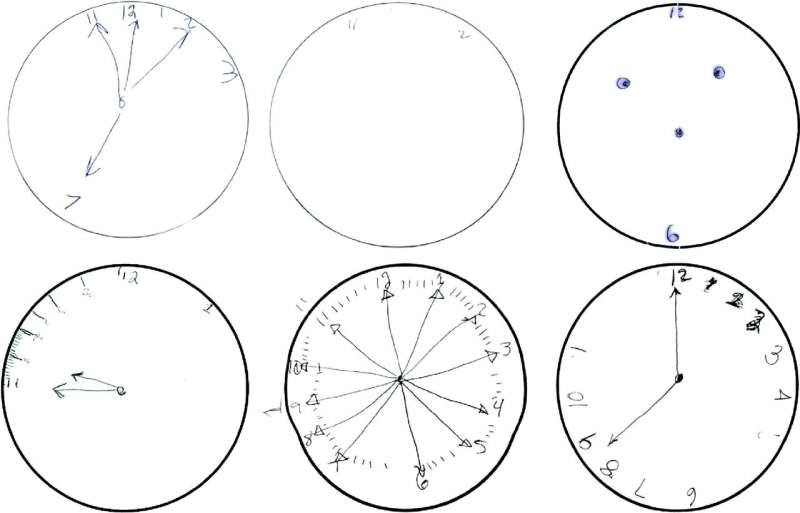Examples of abnormal clock drawings. Credit: The Annals of Family Medicine (2022). DOI: 10.1370/afm.2855
While many patients find at-home colorectal cancer screening tests (known as fecal immunochemical tests or FIT) more comfortable than those performed in the clinic, FIT collection is dependent upon the patient closely following provided instructions. This can be more difficult if the user has undiagnosed cognitive impairments.
In a new study, researchers distributed a simple cognitive test alongside at-home FITs to 1,448 patients to determine if mild, undiagnosed cognitive impairment might be leading to an increase of invalid samples.
Eleven percent of completed FIT stool specimens were incorrectly collected, with approximately 25% of the erroneous samples submitted by individuals who screened positive for cognitive impairment.
The most common collection errors included having too much stool in the vial; stool on the wrong end of the vial; and stool on the wrong side of the slide. Additionally, the researchers found that patients with an eighth-grade education level or less were also more likely to make errors in the collection process.
The findings suggest that health care staff should consider the education level and cognitive function of patients before asking them to perform an at-home FIT test.
The research was published in The Annals of Family Medicine.
More information: Jeanette M. Daly et al, Clock-Drawing Test as a Screening Tool for Cognitive Impairment Associated With Fecal Immunochemical Test Collection Errors, The Annals of Family Medicine (2022). DOI: 10.1370/afm.2855
Journal information: Annals of Family Medicine
Provided by American Academy of Family Physicians
























